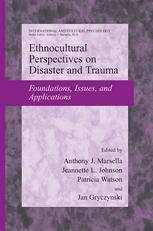

Most ebook files are in PDF format, so you can easily read them using various software such as Foxit Reader or directly on the Google Chrome browser.
Some ebook files are released by publishers in other formats such as .awz, .mobi, .epub, .fb2, etc. You may need to install specific software to read these formats on mobile/PC, such as Calibre.
Please read the tutorial at this link: https://ebookbell.com/faq
We offer FREE conversion to the popular formats you request; however, this may take some time. Therefore, right after payment, please email us, and we will try to provide the service as quickly as possible.
For some exceptional file formats or broken links (if any), please refrain from opening any disputes. Instead, email us first, and we will try to assist within a maximum of 6 hours.
EbookBell Team

0.0
0 reviewsCrises do not occur in cultural vacuums, but help often does. Good intentions are not enough. Lack of cultural understanding, sensitivity, and competencies can hamper and even harm the professional response to disasters. To help and heal, one must know and understand the cultural background of disaster victims. Ethnocultural Perspectives on Disaster and Trauma offers readers substantive knowledge in these three vital areas of disaster response.
In this pioneering volume, experts on individual and collective trauma experience, posttraumatic stress and related syndromes, and emergency and crisis intervention – share knowledge and insights on the cultural context of working with ethnic and racial minority communities during disasters. In each chapter, emotional, psychological, and social needs as well as communal strengths and coping skills that arise in disasters are documented for major minority groups in the United States including specific chapters on African Americans, Native Americans, Arab Americans, Asian Indians, Chinese Americans, Caribbean Americans, Latin Americans, Native Hawaiians, and Vietnamese Americans. Each chapter features information on:
This unique volume is a cultural competency compendium that will increase to the effectiveness of all who respond to disasters. It will also be of interest and value to scholars, policy makers, and health professionals working in the areas of disaster management, crisis intervention, and trauma. Ethnocultural Perspectives on Disaster and Trauma points readers to what the editors call the path "beyond simple assistance to healing and the restoration of hope and meaning."